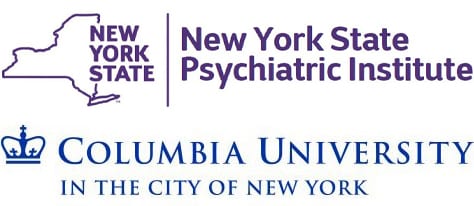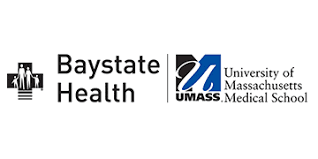Each JCOIN study brings researchers together with justice and health stakeholders in five or more communities to address gaps in opioid use disorder treatment and related services. Their work engages a wide range of justice settings, including jails, prisons, community corrections, problem-solving courts, and juvenile justice agencies. The studies evaluate behavioral interventions, digital therapeutics, comprehensive patient-centered treatments, and delivery of medications for opioid use disorder (MOUD) throughout the United States.
In 2018-2020, JCOIN supported 15 accelerator supplement projects, which included short-term studies and surveys.
Browse all or use the filtering tools below for more information about JCOIN studies.
Opioid Hackathon as Implementation Strategy (013)
This study explored the feasibility and acceptability of hosting a hackathon to scale design and development of new creative opioid crisis-related modeling and visualization tools for public health and justice-related stakeholders. Through qualitative interviews with hackathon participants, public health and justice-related stakeholders, and key government implementation stakeholders (e.g., high-level county and state public health officials) during and one year after the hackathon, it examined the implementation science-related barriers and facilitators to implementing solutions created at the hackathon. Findings can help address barriers to successful implementation, a major limitation of current hackathons.
Medicaid Eligibility & Pre-Release MAT in Wisconsin (012)
The goal of this research is to estimate the effects of increased Medicaid availability for adults released from prison in Wisconsin on treatment access, use, and outcomes for opioid use disorder (OUD). Specifically, we will investigate the degree to which two policy changes affecting Medicaid eligibility for low-income, childless adults were associated with increased use of medication assisted treatment (MAT) by adults with opioid use disorder during the first six months after release from prison. We will create a novel longitudinal database comprised of Wisconsin Medicaid claims data, linked to administrative and correctional health systems data for a retrospectively defined cohort of adults who were incarcerated and released from a state prison between 2013-17. This will allow an in-depth analysis of the utilization of medication assisted treatment (MAT) by people diagnosed with opioid use disorder during community re-entry. This work has the potential to inform health policy nationally by documenting health gains and potential reductions in recidivism that may result from increased access to MAT through expansion of Medicaid.
Extending SIC-Coaching for Justice-Involved Parents (011)
This Administrative Supplement request, DAT: Extending SIC-Coaching to Address Opioid and Methamphetamine Abuse in Parents Involved in the Child Welfare and Criminal Justice Systems, builds upon the work proposed in the parent grant (Facilitating Sustainment Through Implementation Feedback: The SIC Coaching Model; 1 R01 DA044745-01), by extending it to develop an empirically-based implementation approach for a supported intervention to address the needs of families affected by the rapid rise in opioid and methamphetamine addiction.
Linkage Intervention for Justice-Involved Adolescents (010)
Overcoming barriers to substance use (SU) screening and enrollment in SU care is, therefore, central to decreasing JIY’s negative HIV-related outcomes. Intensive efforts to increase screening and improve linkage to HIV (including PrEP for HIV– youth who are behaviorally eligible) and SU services for JIY are needed that address youth as well as justice and health/behavioral health system-level barriers. This project studied the impact of embedding HIV testing outreach workers from a youth focused medical and HIV treatment program into and alternative sentencing program (ASP) to deliver a new service delivery model (Link2CARE) that integrates evidenced-based protocols for justice-involved youth to a) promote HIV and STI testing, HIV and SU risk screening; b) provide onsite intervention; and c) cross-system linkage to HIV, STI and SU care.
Arnold/BJA Bridges Project Evaluation (009)
This supplement is to conduct an implementation process evaluation for the Bureau of Justice Assistance (BJA) and Arnold Ventures’ “Planning Initiative to Build Bridges between Jail and Community-Based Treatment for Opioid Use Disorder.” The goal of the 9-month planning initiative is to help 16 communities develop a continuum of care for providing medications for opioid use disorder (MOUDs) in jails and extending services into the community, bridging jails, community corrections, and community treatment providers.
Agent Based Modeling of Effects of MAT (008)
This supplement expands on the scientific impact of the parent grant (1R21DA044443-01) by estimating the impact of expanded access to medications for addiction treatment (MAT) in prisons and jails on post-release rates of overdose. Led by Miriam Hospital, this project used agent-based modeling, data collected through the parent study, existing surveillance data in Rhode Island (RI), and recently-published data from similar settings to understand how different MAT interventions in prison and jail setting impact overdose death post-release. Researchers utilized an agent-based model using historical data on overdose fatality rates in RI to forecast the number of opioid overdose fatalities over an eight year period (2017-2025) under four different MAT strategies. State surveillance data from the four years preceding implementation of the comprehensive MAT program (2012-2016) will be used to calibrate the model. In order to compare the different strategies, researchers will calculate and compare the total number of overdose fatalities statewide as well as the number of overdose fatalities among those being released from correctional facilities over the eight year period.
Experience in Police-Led Program Models (007)
In response to alarming rates of opioid use disorder (OUD) and opioid overdose related deaths across the US, police departments nationwide have partnered with The Police Assisted Addiction Recovery Initiative (PAARI) to design and implement non-arrest substance use programs and initiatives. The first PAARI program, the Gloucester ANGEL program, began in Massachusetts and other communities have adapted the model to address their local needs. The programs are designed to facilitate access to treatment services rather than taking the approach of arresting substance users.
Post-Release Opioid Trajectories After MOUD in Jail (006)
Individuals with opioid use disorder (OUD) who are released from correctional settings are at high risk for overdose, infectious diseases (HIV, hepatitis C), and premature death. A key strategy to address the opioid epidemic among correctional populations is to increase access to medication for addiction treatment (MAT).
VA/Justice Treatment Survey (005)
This administrative supplement was awarded to the Palo Alto Veterans Institute for Research to survey the Veterans Health Administration (VHA) justice outreach staff and treatment providers about access to opioid use disorder (OUD) pharmacotherapy for justice-involved veterans. The survey was linked with VHA facility-level data to help determine how a core implementation intervention should be tailored to the unique context of each facility to improve access to OUD pharmacotherapy among veterans with justice involvement.
National Drug Court Survey (004)
Expanding the use of medications for addiction treatment (MAT) in specialty courts is a national priority of the Office of National Drug Control Policy and Office of Justice Programs (2018). Providing MAT in community settings, for justice-involved clients or family dependency, is especially challenging given that few problem-solving courts provide medical services, few have treatment budgets, most rely upon local treatment resources, and partnerships are challenging. This administrative supplement will assist in understanding two issues: 1) the current utilization of MAT among problem solving courts; and 2) the barriers and facilitators to the utilization of MAT in problem solving court settings.
National Prison Survey (003)
Despite the widespread evidence demonstrating the effectiveness of medications for addiction treatment (MAT) and the strong recommendations for their use in criminal justice systems, information about what is currently available, accessible, and utilized throughout the criminal justice system is unknown or dated. In response, Chestnut Health Systems was provided a supplement through the parent grant TRIALS Coordinating Center to Reduce Substance Use, HIV Risk Behaviors, & Crime (5U01DA036221-05) to develop and administer a national survey to document the context, relevant laws and policies that affect the ways in which state prisons are able to address the opioid crisis.
National Jail Survey (002)
Despite the widespread evidence demonstrating the effectiveness of medications for addiction treatment (MAT) and the strong recommendations for their use in criminal justice systems, information about what is currently available, accessible, and utilized throughout the criminal justice system is unknown or dated. Through an administration supplement provided to the parent grant TRIALS Coordinating Center to Reduce Substance Use, HIV Risk Behaviors, & Crime (5U01DA036221-05), Chestnut Health Systems develop and administer a national survey document the context, relevant laws and policies that affect the ways in which jails are able to address the opioid crisis.
PDAPS Policy Datasets (001)
This project deployed a unique substance use-specific policy lab called the Drug Outcome Policy Evaluation (DOPE) to better understand the impact of state policies and subsequent health. DOPE expands on the Prescription Drug Abuse Policy System (PDAPS) and the Drug Abuse Policy System (DAPS), which were developed in 2017, to track state policies aimed to address the toll of opioid misuse, and will rank policies or policy features across states and measure their effects on population health.
JCOIN Rapid Innovation Grant (J-RIG) Program
The JCOIN Rapid Innovation Grant (J-RIG) program is a rapid-funding mechanism to support small research grants to study newly emerging policies, practices, or interventions that address prevention and treatment of addiction in justice settings. While opioids are a key priority for J-RIG projects, applications may focus more broadly on other substance use issues, particularly substances…
- « Previous
- 1
- 2
- 3
- 4












